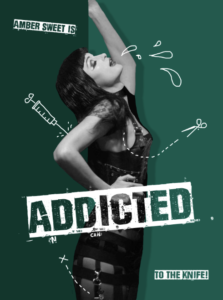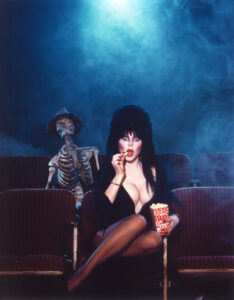Netflix’s new show “Midnight Gospel” bills itself as a spiritual successor to creator Pendleton Ward’s “Adventure Time.” The show proudly displays a classic CalArts animation style, complete with neon colors and a gauzy filter. However, “Midnight Gospel” is actually a clumsy translation of its star Duncan Trussell’s podcast into an animated sci-fi fantasy format.
“The Duncan Trussell Family Hour” features Trussell interviewing everyone from actors to authors on trendy subjects like mindfulness and Eastern spirituality. “Midnight Gospel” features a self-insert of Trussell in the character of an alien named Clancy who travels through space, time and dimensions in various goofy avatars to find people to interview for his space podcast. This serves as less of a plot and more of a loose framework that provides space for Trussell to insert clips of his podcast synced up to animated characters or for droning, senseless dialogue that may as well be from an SNL NPR skit.
The show is beautiful, giving you plenty to look at while you listen to the podcast guests drone on and on. There is never a boring frame. However, the aesthetics are not enough to sustain the show; without even reading any background information on it, I was able to easily tell what it really was—a visual accompaniment to a podcast. What Disney’s Fantasia is to classical music, “Midnight Gospel” is to “The Duncan Trussell Family Hour.”
The dialogue is heinous, almost clinical at times. In the first episode, Clancy travels to Earth in the middle of a zombie apocalypse, where he meets the president. While he and the president run through the city busting zombie brains, the president, who is essentially the avatar of Trussell’s podcast guest Dr. Drew Pinsky, gives his lengthy opinion on the legalization of drugs from marijuana to opiates. In the second, Clancy interviews Christian writer Anne Lamott about aging and Jesus. In the third, Clancy interviews a fish boat captain played by exonerated Damien Echols of the West Memphis Three, where he waxes poetic about his real-life pursuits in karma and magic. Any meaningful, poignant ideas, or anything of value that is said, is completely overwhelmed and underserved by the frailty of the show’s structure. This is especially true for the show’s seventh episode, which features Caitlyn Doughty as the voice of Death. Doughty, who was recently featured in the Campanil, is a leader of the death positive movement and spends her episode explaining the harms of the death industrial complex. The potential of Doughty’s interview is wasted on TV; her valuable ideas are sucked into a void where the plot should be.
The best episode of the show is its last, “Mouse of Silver.” It features a de-aged Clancy, interviewing his deceased mother as she walks him through the stages of life. Despite a grotesquely out-of-touch exchange where Clancy’s mother exhorts the values of mindfulness to the poor (“I think the easiest thing for [a disadvantaged] person to do is to get present. And that means to put the past aside, put the future aside, and sense into their bodies. They can do that, even if they don’t have a penny.”) it is the rapport between Clancy and his mother that makes this episode bearable. “Mouse of Silver” proves further that it’s actually not an insane idea to try and turn a podcast into an animated show—a YouTube search will show you fan-animated clips of podcasts like “Welcome to Night Vale,” “Critical Role” or “My Brother, My Brother and Me.” The viability of the concept rests not in the plot, but in the rapport, the dialogue, the back-and-forth, all things which the more traditional host-professional interview episodes of “Midnight Gospel” lack.



